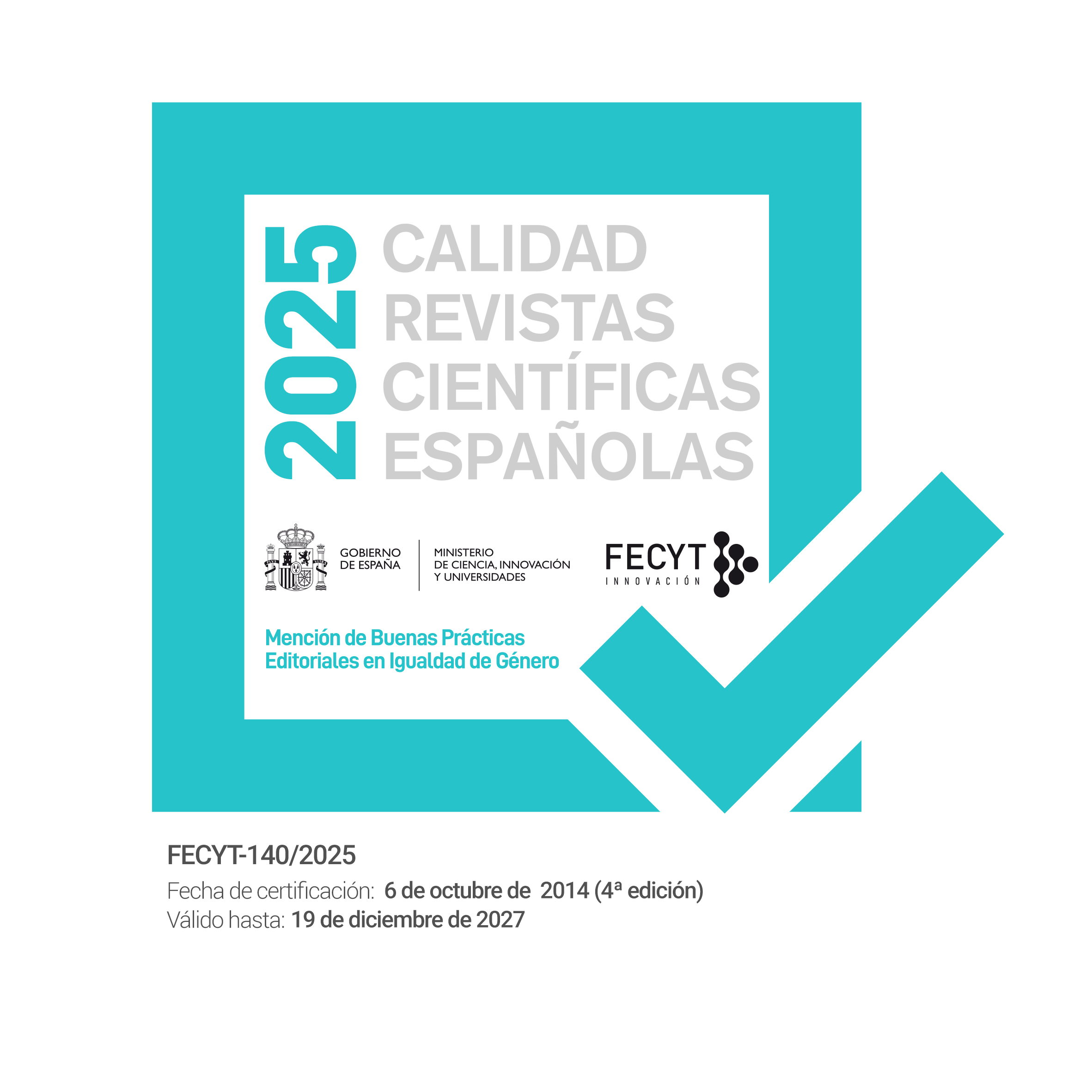ENTREPRENEURIAL SKILLS OF ADULT CONTINUING EDUCATION IN ANDALUSIA. PERCEPTION OF TEACHER
DOI:
https://doi.org/10.5944/educxx1.17511Keywords:
Adult education, job skills, further education of teachers, entrepreneurial culture, training need.Abstract
In the present study, we analyze the teaching staff perception of Adult Continuing Education in Andalusia (Spain) in relation to the degree of entrepreneurial skills present in their students. To give an answer the objective proposed, we assume a descriptive research design, where the collection approach and analysis of data have been defined as mixed, which include qualitative (interviews) and quantitative (questionnaire) techniques. For questionnaire validation the expert judgment technique was used, as they were selected by the «expert competence coefficient» or «K coefficient» procedure. The reliability analysis of the questionnaire through the Cronbach test was 0.957. The questionnaire was answered by 549 teachers from Continuing Education Centres in Andalusia and there were 23 in-depth interviews with key informants (centre directors and section coordinators). The results clearly show the perception, both of teachers and of those who exercise leadership, that the students of these schools are not sufficiently prepared to start their own business project, in spite of studying subjects of an enterprising culture. They consider that have not yet acquired the entrepreneurial skills necessary to create andmanage an efficient business project, with lack of creativity constituting one of the biggest obstacles to that end. Also, the study shows the low incidence of programs of an entrepreneurial culture developed in these centres.
Downloads
References
Álvarez Castro, M. J., Rebollo, M. A. y Rodríguez Díaz, M. R. (2013). Factores facilitadores y bloqueadores del emprendimiento
femenino. Orientar para el emprendimiento desde una perspectiva de Género. Actas del XVI Congreso Nacional / II Internacional Modelos de Investigación Educativa de la Asociación
Interuniversitaria de Investigación Pedagógica (AIDIPE), Alicante,
-6 de septiembre.
Basso, O. Fayolle, A. & Bouchard, V. (2009). Entrepreneurial orientation: the making of a concept. The International Journal of Entrepreneurship and Innovation, 10(4), 313-321.
Brooks, R., Green, W., Hubbard, G., Jain, D., Katehi, L., McLendon, G., Plummer, J. & Roomkin, M. (2007). Entrepreneurship in American Higher Education. Ewing Marion Kauffman Foundation. Kansas Sity, 111-117.
Cabero, J., Fernández Batanero, J. M. y Orta, I. (2015). Dificultades de Lectura y Escritura en Alumnos con Nacimiento
Prematuro. Construcción de un Instrumento de Diagnóstico.
Revista de Evaluación Educativa, 4(1). Recuperado de http://goo.gl/nPsoOO
Cámaras de Comercio/Ministerio de Educación y Ciencia (2006). Fomento del espíritu emprendedor en la escuela. Madrid: Comunicación S.L.
Castro, J., Barrenechea, J. e Ibarra, J. (2011). Cultura emprendedora, innovación y competencias en la educación
superior. El caso del programa GAZE. Arbor: ciencia, pensamiento y cultura, 3, 207-2012.
Covin, J. G., Green, K. M. & Slevin, D. P. (2006). Strategic Process Effects on the Entrepreneurial Orientation sales Growth Rate Relationship. Entrepreneurship Theory and Practice, 30,57-81.
Damas, A. (2012). Promover el emprendimiento en secundaria. Aula de innovación Educativa, 213-214, 38-44.
Decreto 219/2011, de 28 de junio, por el que se aprueba el Plan para el Fomento de la Cultura Emprendedora en el Sistema Educativo Público de Andalucía (BOJA 137 de 14/07/2011).
Díaz Barriga, A. (2006). El enfoque de las competencias en la educación. ¿Una alternativa o un disfraz de cambio? Perfiles Educativos, 111, 7-36.
Ernest & Young Consultores (1997). Innovación en la gestión empresarial. Gestión por competencias. Madrid: Edición especial Cinco Días.
Freire, M. J. (2008). Competencias profesionales de los universitarios. La Coruña: Universidad de A Coruña.
Galindo, P. (2006). Cultura Ético-Emprendedora (E2) y desarrollo de competencias transversales clave para la inserción sociolaboral de los universitarios. Revista de Educación de la Universidad de Granada, 19, 129-146.
Global Entrepreneurship Monitor. (2012). Informe ejecutivo GEM Andalucía. Recuperado de http://goo.gl/YUd5I
Global Entrepreneurship Monitor (2010). Informe ejecutivo GEM España,. Recuperado de http://goo.gl/zWw5TY
González Domínguez, F. J. (2004). Incidencia del marco institucional en la capacidad emprendedora de los jóvenes empresarios de Andalucía. [Tesis Doctoral]. Universidad de Sevilla. Recuperado de http://goo.gl/qQ7j4E
Krueger, (2000). The cognitive Infrastructures of Opportunity Emergence. Entrepreneurship Theory and Practice, 25, 3, 5-23.
Martínez Rodríguez, F.M. (2011). Percepción del profesorado de las escuelas taller y casas de oficios en Andalucía acerca del nivel de competencias emprendedoras en su alumnado. Revista
de Educación, 356, 303-326.
Pajares, M.F. (1992). Teachers’ Beliefs and Educational Research: Cleaning Up a Messy Construct. Review of Educational
Research, 62(3), 307-332.
Parlamento Europeo (2006). Competencias clave. Textos aprobados por el Parlamento Europeo. Estrasburgo: Parlamento Europeo.
Parlamento Europeo y Consejo Europeo (2005). Recomendación sobre las competencias clave para el aprendizaje permanente.
Bruselas: COM.
Proyecto Tuning (2007). Tunning education structures in Europe. Informe final. Bilbao: Universidad de Deusto.
Ruiz-Navarro, J., Camelo, C., De La Vega, I., Coduras-Martínez, A. y Justo, R. (2010). Mujer y desafío emprendedor en España. Universidad de Cádiz e Instituto de Empresa.
SalganiK, L.H. y Stephens, M. (2006). Prioridades competenciales en la política y la práctica. En D. S. Rychen y L.
H. SalganiK (Comps.), Las competencias clave para el bienestar personal, social y económico (pp. 49-71). Málaga: Ediciones Aljibe.
Sarasvathy, S.D. & Venkataraman, S. (2011). ntrepreneurshipas Method: Open Questions for an Entrepreneurial Future. Entrepreneurship Theory and Practice, 35, 113-135.
Sobrado Fernández, L. y Fernández Rey, E. (2010). Competencias emprendedoras y desarrollo del espíritu empresarial en los centros educativos. Educación XX1, 13(1), 15-38.
Teece, D. (2007). Explicating dynamic capabilities: The nature and microfoundations of (sustainable) enterprise performance. Strategic Management Journal, 28, 1319-1350.
Tejada, J. y Navío, A (2005). El desarrollo y la gestión de competencias: una mirada desde la formación. Revista Iberoamericana de Educación, 37(2). Madrid: OEI, 1-16.
Tocher, N. Oswald, S. L., Shook, L. & Adams, G. (2012). Entrepreneur political skill and new venture performance: Extending the social competence perspective. Entrepreneurship & Regional Development, 24(5-6), 283-305.
Vega, J. (2008). Acciones para el fomento de la cultura emprendedora en el sistema educativo asturiano. El busgosu,
, 30-34.
Downloads
How to Cite
Issue
Section
License
Educación XX1 is published under a Creative Commons Attribution-NonCommercial 4.0 (CC BY-NC 4.0)










